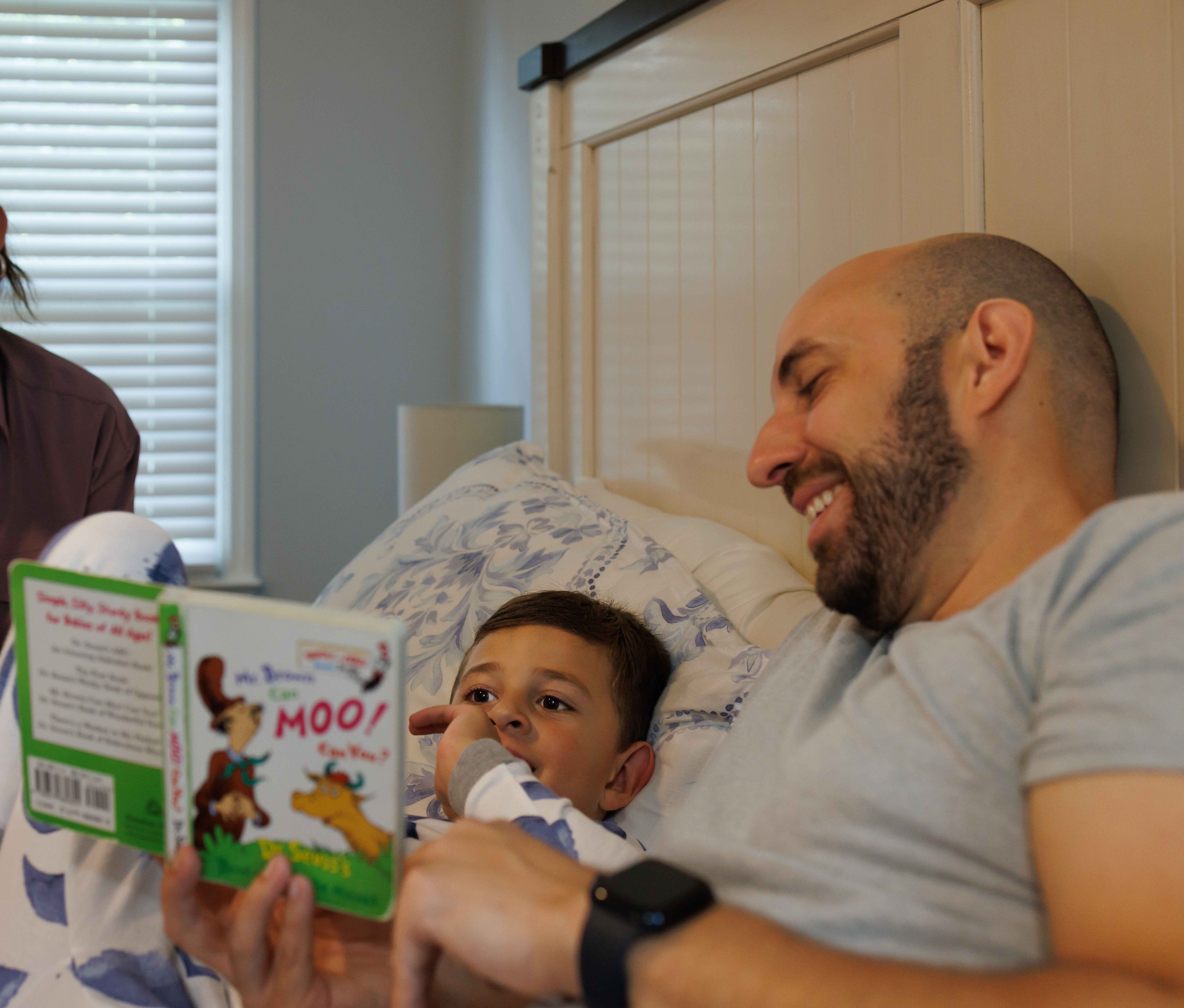Families can be potent allies to support listening comprehension at home.
One of the most effective strategies is to encourage shared reading. These could be books either required or recommended by teachers, or books independently selected by families and their children. Researchers find that shared reading at home builds language skills, which in turn have a positive impact on elementary school reading outcomes (Sénéchal and LeFevre, 2002; Sénéchal and LeFevre 2014; Sénéchal, 2015; Sénéchal, 2017; Silinksas et al 2020).
An analysis of a nationally representative longitudinal data set finds that much of the correlation between mothers’ education level and children’s educational outcomes is driven by mothers reading to their children (Hardy and Gershenson, 2015). Parents and caregivers across different levels of education can positively impact children’s educational outcomes through shared book reading at home.

One potential approach is the “strive for five” model, which encourages at least five back-and-forth exchanges between students and their teachers or caregivers during discussions or shared reading. This approach uses open-ended questions and follow-up prompts to foster deeper conversations, critical thinking, and comprehension (Zucker et al, 2020; Cabell & Zucker, 2023).
For example, educators can encourage families to read the books students are exposed to during the school day at home. This extra exposure provides individual engagement opportunities that may not exist during whole-group instruction. Educators can provide advice to families on how to transform repeated readings of the same book into scaffolded instructional experiences.
Another example is to provide advice to families on selecting connected text to read at home. Parents and caregivers can also be encouraged and supported to read books related to topics that students are learning in school. Reading books together with similar topics or themes (even across genres) not only offer opportunities to build listening comprehension skills but also background knowledge.
With the right support, families can take explicit actions during shared reading to build listening comprehension skills.
The following is a list of examples of targeted actions educators can encourage families to take during shared reading at home:
See the Materials Directory for ideas of classroom routines, practices, and activities that can be adapted to encourage and support shared reading at home.
Cabell, S.Q. and Zucker, T.A. (2024). Using strive-for-five conversations to strengthen language comprehension in preschool through grade one. The Reading Teacher, 77: 522-532.
Hardy, B. L., & Gershenson, S. (2015). Parental involvement and the intergenerational transmission of educational attainment. Department of Public Administration and Policy, American University, Washington.
Jeynes, W. (2012). A meta-analysis of the efficacy of different types of parental involvement programs for urban students. Urban education, 47(4), 706-742.
Sénéchal, M. (2015). Young children’s home literacy experiences. The Oxford Handbook of Reading. Oxford: Oxford University Press.
Sénéchal, M. (2017). Shared reading: an informal literacy activity par excellence. The Routledge International Handbook of Early Literacy Education. Oxford: Routledge.
Sénéchal, M. & LeFevre, J. (2002). Parental involvement in the development of children's reading skill: a five-year longitudinal study. Child Development. 73(2): 445-60.
Sénéchal, M. & LeFevre, J. (2014). Continuity and change in the home literacy environment as predictors of growth in vocabulary and reading. Child Development. 85(4): 1552–1568.
Silinskas, G., Sénéchal, M., Torppa, M., & Lerkkanen, M. K. (2020). Home literacy activities and children’s reading skills, independent reading, and interest in literacy activities from kindergarten to grade 2. Frontiers in Psychology, 11.
Zucker, T.A., Cabell, S.Q., Oh, Y., & Wang, X. (2020). Asking Questions Is Just the First Step: Using Upward and Downward Scaffolds. The Reading Teacher, 74(00), 275–283.
Search the directory for instructional resources such as activities, strategies, practices, student platforms, supplemental curricula, and interventions as well as assessments to target listening comprehension in the classroom.
Sign up and we’ll update you as we add new resources to support your classroom listening comprehension instruction.